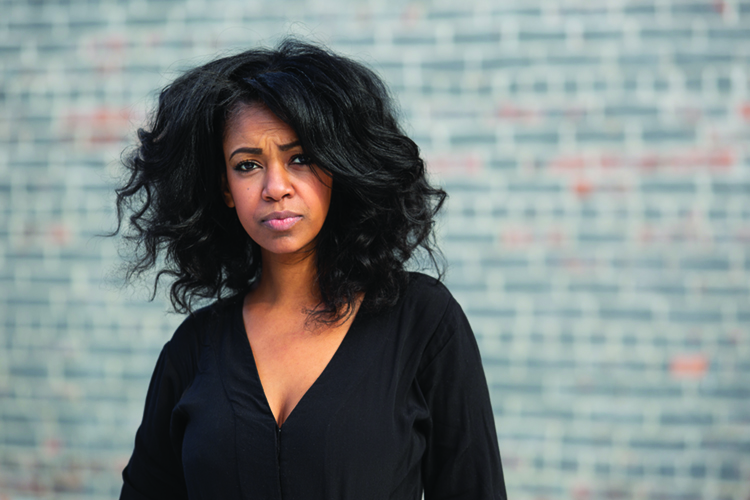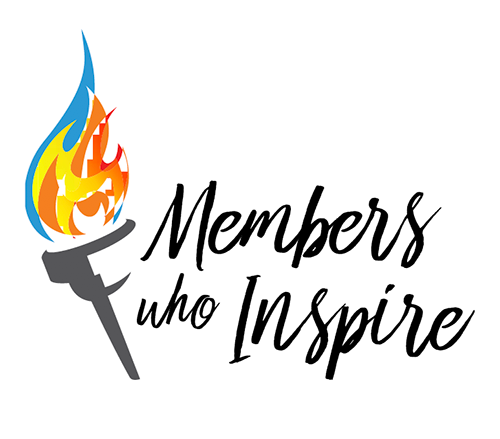Tsion Gurmu calls on personal experience to support Black immigrants

“For me, the attacks against the asylum system are really personal,” Tsion Gurmu says. Photo by Mauricio Norona.
Tsion Gurmu traces her interest in law back to the Buford Highway community in Atlanta, where she grew up among a large number of asylum-seekers from Africa who struggled to navigate the immigration system.
Her own parents fled Ethiopia during the country’s civil war in the late 1980s. Her father, a political organizer who had been imprisoned under the Derg military regime, had been hiding with her mother in the northern town of Axum. A friend who was a nurse delivered Gurmu in their home because the hospital was shut down.
Gurmu stayed with her grandmother in Addis Ababa, the capital of Ethiopia, for about three years until her aunt could take her to her parents in the United States. By that time, her father had applied for asylum and petitioned for her and her mother to receive derivative asylee status.
She heard about the challenges of the process, and as a young adult, Gurmu became drawn to international human rights and immigration. She saw asylum law as an area where these issues converged.

“You must possess a really strong understanding of the situation on the ground and the root causes of forced migration to properly represent your clients,” says Gurmu, the legal director of the Black Alliance for Just Immigration, a racial justice and immigrant rights organization based in Brooklyn, New York. “And it requires a certain level of cultural competence and an understanding of global migration issues to even work here in the United States.
“I saw how that played out for my family and the people I was close to, and I was committed to engaging in legal work that would not be limited to representing individuals who had been part of these forced migration patterns but also thinking about, ‘How do we stop this?’”
Developing connections
Gurmu returned to Addis Ababa as a student at the University of Chicago. She worked as an intern with the Ethiopian Women Lawyers Association, where she focused on projects addressing sexual and reproductive health rights, poverty and gender-based violence.
“EWLA was a really important way for me to begin thinking about my legal career because I wanted to maintain that connection to Ethiopia,” Gurmu says. “And interestingly, [Meaza Ashenafi], the founder of EWLA became the president of the Ethiopian Supreme Court. I think that speaks to the power of that organization and how these women have the power to impact laws in Ethiopia.”
Gurmu continued assisting the women lawyers’ organization after she received her bachelor’s degree in political science and history in 2010. While at the New York University School of Law, she also worked as a legal advocate with Defence for Children International in Sierra Leone and drafted child protection-related trial briefs for the country’s supreme court.
As Gurmu prepared to graduate in 2015, she became aware of an emerging need in the immigrant community. Dozens of African countries had enacted or began enforcing laws that criminalized homosexuality. Because of this, significant numbers of LGBT Africans were fleeing their homes and seeking protection in the United States.
She understood language and cultural barriers could prevent these immigrants from disclosing intimate aspects of their identity in their asylum applications or accessing other legal and social services, and she wanted to support them.
“It was a really chaotic time due to the expansion and enforcement of anti-homosexuality legislation across Africa, so this could not have been a more relevant project, especially in New York City,” Gurmu says. “A lot of folks just didn’t know where to go. We have support for the LGBT community throughout the city, but it is not necessarily a welcoming space for queer and trans African migrants.”
Building community
Gurmu approached the African Services Committee, a human rights agency that assists immigrants, refugees and asylees from across the African diaspora. The organization, which provides HIV prevention, testing and treatment, was receptive to her idea and agreed to host what became the Queer Black Immigrant Project.
Through a two-year Equal Justice Works fellowship, Gurmu represented LGBT African and Caribbean immigrants in their asylum proceedings. She connected her clients, including those impacted by HIV/AIDS, to mental health and medical services.
Gurmu also created a support group so they could meet other members of the LGBT African diaspora community. Many had never talked about their sexual identity or past harms, but she encouraged them to open up about their experiences.
“The process of building their asylum cases was incredibly difficult because many folks had not worked through a lot of their mental blocks,” Gurmu says. “We started the support group and a storytelling project for Black queer and trans asylum-seekers to share what they had been through but also to create a safe space to build community and trust with other folks in the United States.”
Susan Gzesh, an instructional professor at the University of Chicago who taught Gurmu and talked with her about her project, describes Gurmu as a great role model for immigrant rights attorneys who want to effect change.
“She builds from her family history, but she is also visionary about what has to happen,” Gzesh says. “Right after law school, she decided to set something up that no one else was doing. She is somebody who has a sense of what’s on the cutting edge. And she’s an institution builder.”
Gurmu was interested in supporting other organizations with capacity-building needs. She discovered many Black-led immigrant rights groups that were engaged in high-level policy and grassroots organizing work but didn’t offer direct legal representation. “It did not make sense to me,” Gurmu says. “There was such a need, and there was the prospect of building a corps of Black immigration attorneys, training them and helping them enter the field with a very particular type of support that can only be provided by the leadership of a Black-led immigrant rights group.”
Expanding the work
This time, Gurmu took her proposal to Opal Tometi, who has since changed her first name to Ayo. Tometi was then the executive director of Black Alliance for Just Immigration and later became a co-founder of the Black Lives Matter movement. With Tometi’s support, Gurmu became the organization’s first legal director in 2018. She extended the Queer Black Immigration Project to BAJI and built a legal team to help with direct representation.
Gurmu, who now lives in Houston, also works on federal litigation related to asylum and spearheads legal advocacy projects, including calling attention to human rights violations in U.S. Immigration and Customs Enforcement detention facilities.
She assists Black immigrants at the southern U.S. border and in Mexico. She leads workshops to help them understand developments in the immigration system—such as the Biden administration proposal that would stop many asylum-seekers in Mexico or other countries they travel through on their way to the United States. She additionally helps them prepare for credible fear and reasonable fear interviews.
Rebecca Alemayehu, an attorney and the founder of Alemayehu African Dream, has worked closely with Gurmu. Through her nonprofit, she co-facilitates the Black Migrant Clinic at the border.
For Alemayehu, it’s Gurmu’s compassion that stands out in their work.
“That’s really important when working with this community,” she says. “They have been let down so many times, especially in making that journey, let’s say, from Eritrea or Congo or other places in Africa all the way to Tijuana. They have been through a lot, and to have that compassion when they arrive at the border is something I feel like everybody needs.”
Gurmu was recognized by Forbes, which named her to its 30 Under 30 in law and policy list in 2018. Within the ABA, she was a Young Lawyers Division scholar in 2019-2020 and received its On the Rise Award in 2022. She is the Commission on Immigration’s liaison to BAJI.
She believes the problems facing immigrants are more pressing than ever and remains committed to being a zealous advocate for them. Along with her other roles, Gurmu serves on the New York City Bar Association African Affairs Committee and Immigrant Legal Resource Center board of directors.
“Asylum as a form of immigration relief is under attack,” Gurmu says. “It was under attack from the day [former President Donald] Trump got into office, but there haven’t really been any changes with the Biden administration.
“They are trying to whittle away at this critical form of relief enshrined in domestic and international law that is the way I—and all my loved ones—came to the United States. So for me, the attacks against the asylum system are really personal.”
This story was originally published in the June-July 2023 issue of the ABA Journal under the headline: “Rescue Mission: Tsion Gurmu calls on personal experience to support Black immigrants.”
Members Who Inspire is an ABA Journal series profiling exceptional ABA members. If you know members who do unique and important work, you can nominate them for this series by emailing [email protected].



